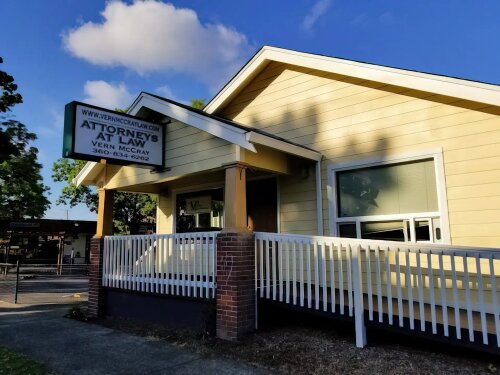Best Inheritance Law Lawyers in Washington
Share your needs with us, get contacted by law firms.
Free. Takes 2 min.
Or refine your search by selecting a city:
List of the best lawyers in Washington, United States
About Inheritance Law in Washington, United States
Inheritance law in Washington covers wills, intestate succession, probate, and related trusts. In Washington state, the superior court in the decedent’s county oversees probate administration. A will is typically admitted to probate to appoint an executor and distribute assets, while an intestate estate is settled under state succession rules when no valid will exists.
Key terms you will encounter include testator, beneficiary, executor, administrator, and fiduciary. Washington recognizes both testate transfers (with a will) and intestate transfers (without a will). The landscape now also involves digital assets and modern retirement accounts, which require careful planning and documentation.
This guide is informational and not legal advice. Laws change, so consult a Washington probate attorney for current practice and personalized guidance. For official details, see Washington Courts resources and RCW provisions referenced below.
Why You May Need a Lawyer
- A loved one leaves a will you believe is invalid or improperly executed, and you want to challenge it. Capacity, undue influence, or fraud are common grounds for contest in Washington probate matters.
- You are named as executor or administrator and must file court documents, obtain bonds, and manage notices. A lawyer can help prepare petitions and comply with court deadlines.
- The estate includes real estate in multiple counties or assets located outside Washington. Multistate assets complicate probate and may require ancillary proceedings.
- There is a dispute among heirs about who should receive assets or the interpretation of a trust or will. A lawyer can help negotiate settlements or represent you in court.
- There are significant debts or creditor claims against the estate. A lawyer can guide notice requirements and timely handling of claims to protect assets.
- The estate involves digital assets, business interests, or revocable or irrevocable trusts. A lawyer can ensure proper titling, distributions, and fiduciary duties.
Local Laws Overview
Washington probate and inheritance matters are primarily governed by statutes within the Washington Revised Code and are interpreted through court rules. The core framework covers wills, intestate succession, probate procedures, and creditor notice.
Key statutory areas include the general Wills and Probate provisions, the Small Estates process, and creditor notice and claims procedures. For the most current text, refer to RCW Title 11 Wills and Probate and related Washington Court rules.
- RCW Title 11 - Wills and Probate: Outlines how wills are executed, proven, and administered, and how estates are distributed when there is a will or when there is no will. See official RCW sources for current text and updates. Official source: Washington State Legislature - RCW
- Small Estates (Affidavit) Provisions: Provides a streamlined option for certain estates that meet thresholds to transfer assets without full probate. Exact thresholds and procedures are in RCW sections covering small estates; consult the RCW and Wa Courts guidance for specifics. Official source: Washington Courts
- Creditor Claims and Notice Procedures: Probate requires notifying creditors and handling claims within established timelines. See RCW and court rules for details on notices and deadlines. Official source: Washington State Legislature - RCW
Recent trends in Washington probate emphasize clarity in notice to heirs and executors, proper handling of digital assets, and consistent administration across counties. For current text and updates, review the official RCW and court resources linked above. Official sources provide the most reliable guidance for proceedings in Seattle, Spokane, and other Washington jurisdictions.
Note: Washington does not have a state inheritance tax; federal estate taxes and gifts may apply in certain situations, so consult a tax professional as needed. Official guidance is available from the Washington Department of Revenue and the IRS.
For official details, visit Washington Courts - Probate and Washington State Legislature - RCW.
Frequently Asked Questions
What is probate in Washington?
Probate is the court process that validates a will or determines rightful heirs when there is no will. The estate is administered, debts are paid, and assets are distributed to beneficiaries.
How long does probate take in Washington typically?
Durations vary by complexity, court caseload, and whether any disputes exist. A straightforward, uncontested probate often ranges from 6 to 12 months; more complex cases can exceed a year.
What is the difference between an executor and an administrator?
An executor is named in a will to administer the estate. If there is no will, the court appoints an administrator to manage the estate.
Do I need a lawyer for probate in Washington?
While not required, a lawyer can help prepare documents, comply with deadlines, manage notices, and handle court hearings. Complex estates generally benefit from legal counsel.
How much does probate cost in Washington typically?
Costs include court filing fees, attorney fees, and potential executor fees. Fees depend on estate size, complexity, and whether disputes arise.
What is intestate succession in Washington?
Intestate succession governs distribution when someone dies without a valid will. Washington law sets lists of heirs and shares based on the family situation.
What documents do I need to start probate in Washington?
You typically need the death certificate, the will (if any), a proposed executor or administrator, and asset information. The court will provide specific forms.
Is a will valid if signed out of state or by a non-resident?
Washington recognizes certain out-of-state wills if they meet formal requirements consistent with Washington law. A lawyer can confirm validity and steps to probate.
Can I challenge a Washington will?
Yes, you may contest a will on grounds such as lack of capacity, undue influence, fraud, or improper execution. A lawyer can assess merits and process.
How do I file a small estate affidavit in Washington?
If the estate qualifies, a small estate affidavit may bypass full probate for transferring specific assets. Filing requirements and thresholds are set by RCW provisions and court rules.
Should I hire a probate attorney for a complex estate with out-of-state assets?
Yes. Multistate assets, trusts, or disputed distributions increase complexity. A probate attorney helps coordinate filings across jurisdictions and protects your interests.
What about digital assets in Washington probate?
Digital assets require careful documentation, including access to accounts and passwords. A lawyer can help align digital asset plans with probate and trust documents.
Additional Resources
- Washington Courts - Probate Resources: Official information on probate procedures, forms, timelines, and county-specific guidance. courts.wa.gov
- Washington State Legislature - Revised Code of Washington: Official statutes governing wills, probate, and intestate succession. leg.wa.gov
- Internal Revenue Service (Estate and Gift Taxes): Federal guidance on estate and gift taxes that may affect Washington estates. irs.gov
Next Steps
- Gather all relevant documents, including the will, death certificate, asset list, debts, and existing trusts. Set aside a dedicated folder for probate records. Time estimate: 1-2 weeks after death.
- Assess whether probate is required or if a small estate affidavit may apply. Create a checklist of assets to probate and liabilities to address. Time estimate: 1-3 weeks after death.
- Identify potential heirs and beneficiaries. Prepare a basic chart showing relationships and expected shares. Time estimate: 1-2 weeks after death.
- Consult a Washington probate attorney for an initial strategy session. Bring all documents and questions about timelines and costs. Time estimate: 1-2 weeks after the decision to consult.
- If you proceed with probate, file the appropriate petition in the correct county court and obtain any necessary bonds. Your attorney can manage notices and filings. Time estimate: 4-8 weeks for initial filings, depending on county.
- Address creditor notices and claims, distribute assets as allowed by law, and close the estate with a final accounting. Time estimate: several months to over a year, depending on complexity.
Lawzana helps you find the best lawyers and law firms in Washington through a curated and pre-screened list of qualified legal professionals. Our platform offers rankings and detailed profiles of attorneys and law firms, allowing you to compare based on practice areas, including Inheritance Law, experience, and client feedback.
Each profile includes a description of the firm's areas of practice, client reviews, team members and partners, year of establishment, spoken languages, office locations, contact information, social media presence, and any published articles or resources. Most firms on our platform speak English and are experienced in both local and international legal matters.
Get a quote from top-rated law firms in Washington, United States — quickly, securely, and without unnecessary hassle.
Disclaimer:
The information provided on this page is for general informational purposes only and does not constitute legal advice. While we strive to ensure the accuracy and relevance of the content, legal information may change over time, and interpretations of the law can vary. You should always consult with a qualified legal professional for advice specific to your situation.
We disclaim all liability for actions taken or not taken based on the content of this page. If you believe any information is incorrect or outdated, please contact us, and we will review and update it where appropriate.
Browse inheritance law law firms by city in Washington
Refine your search by selecting a city.









